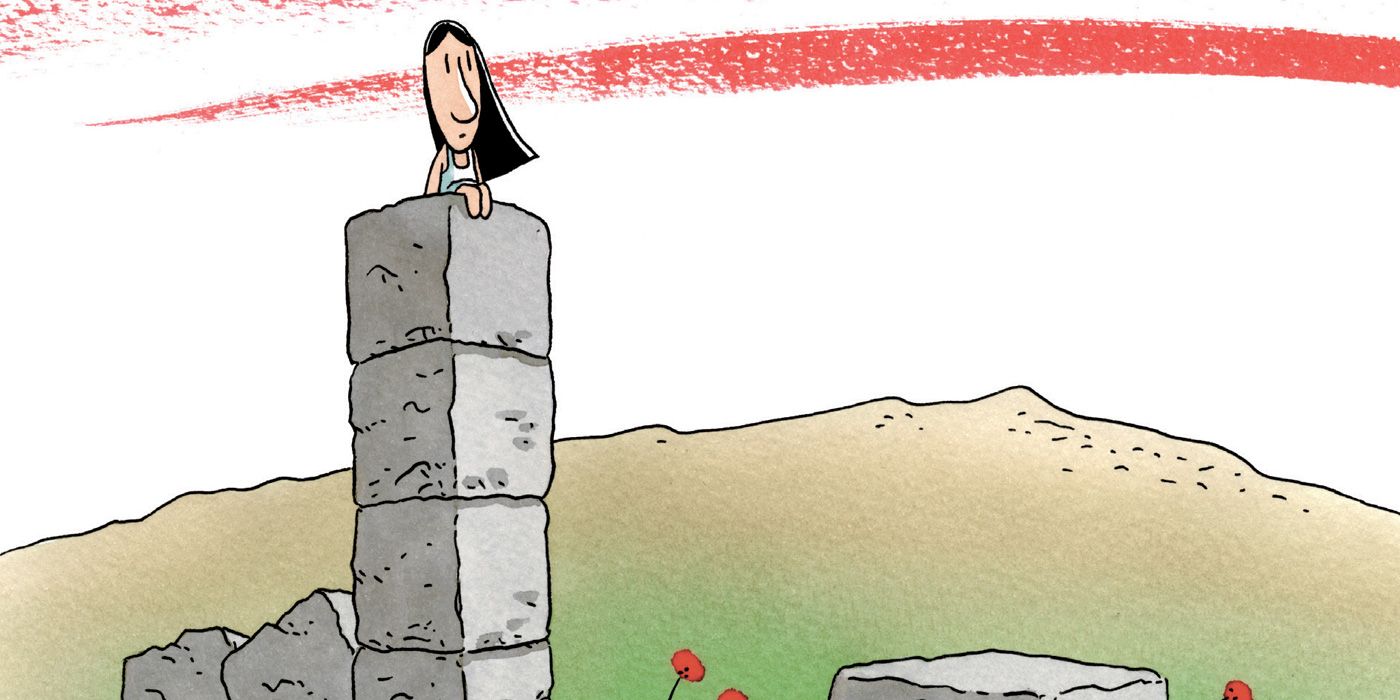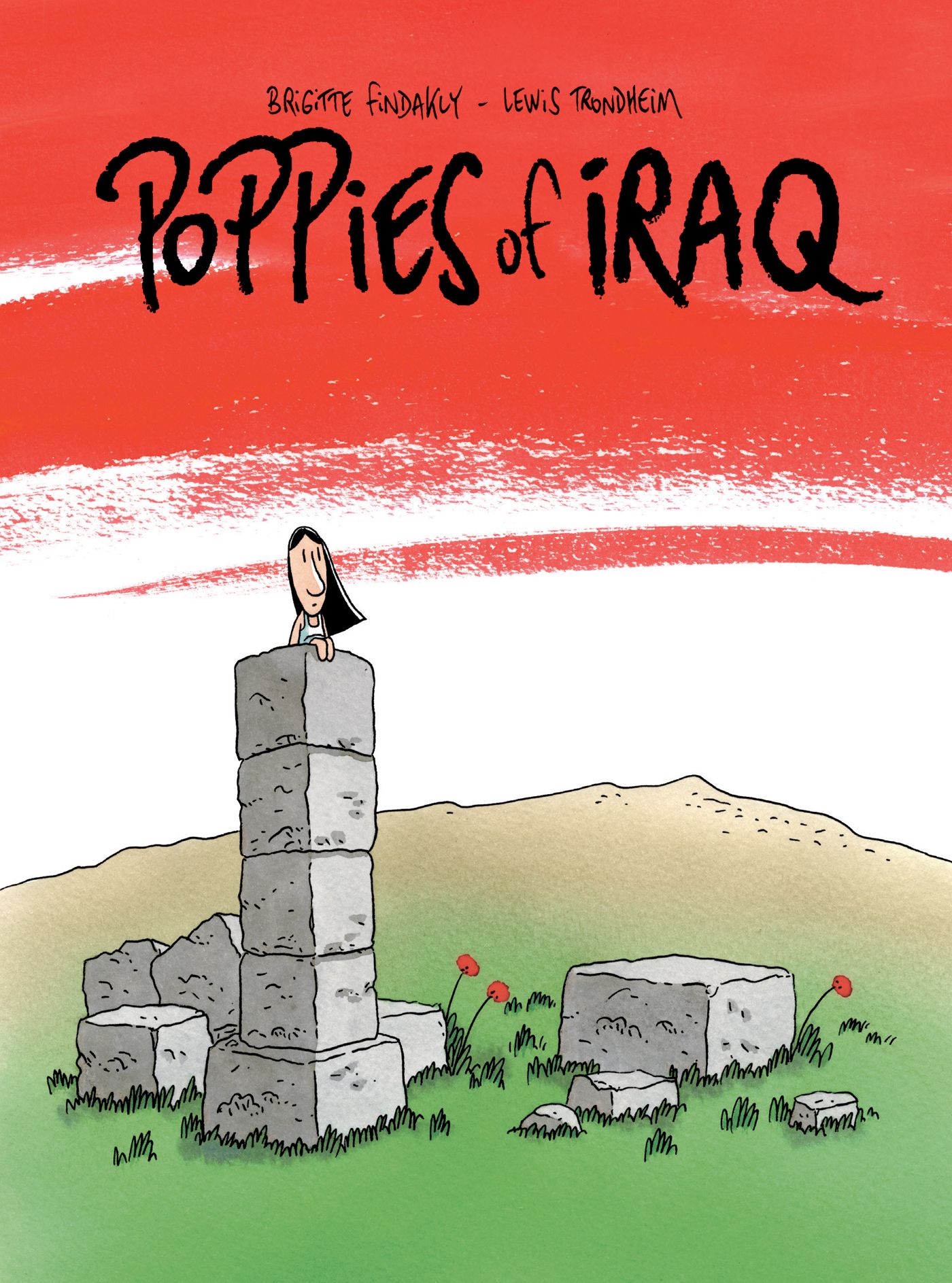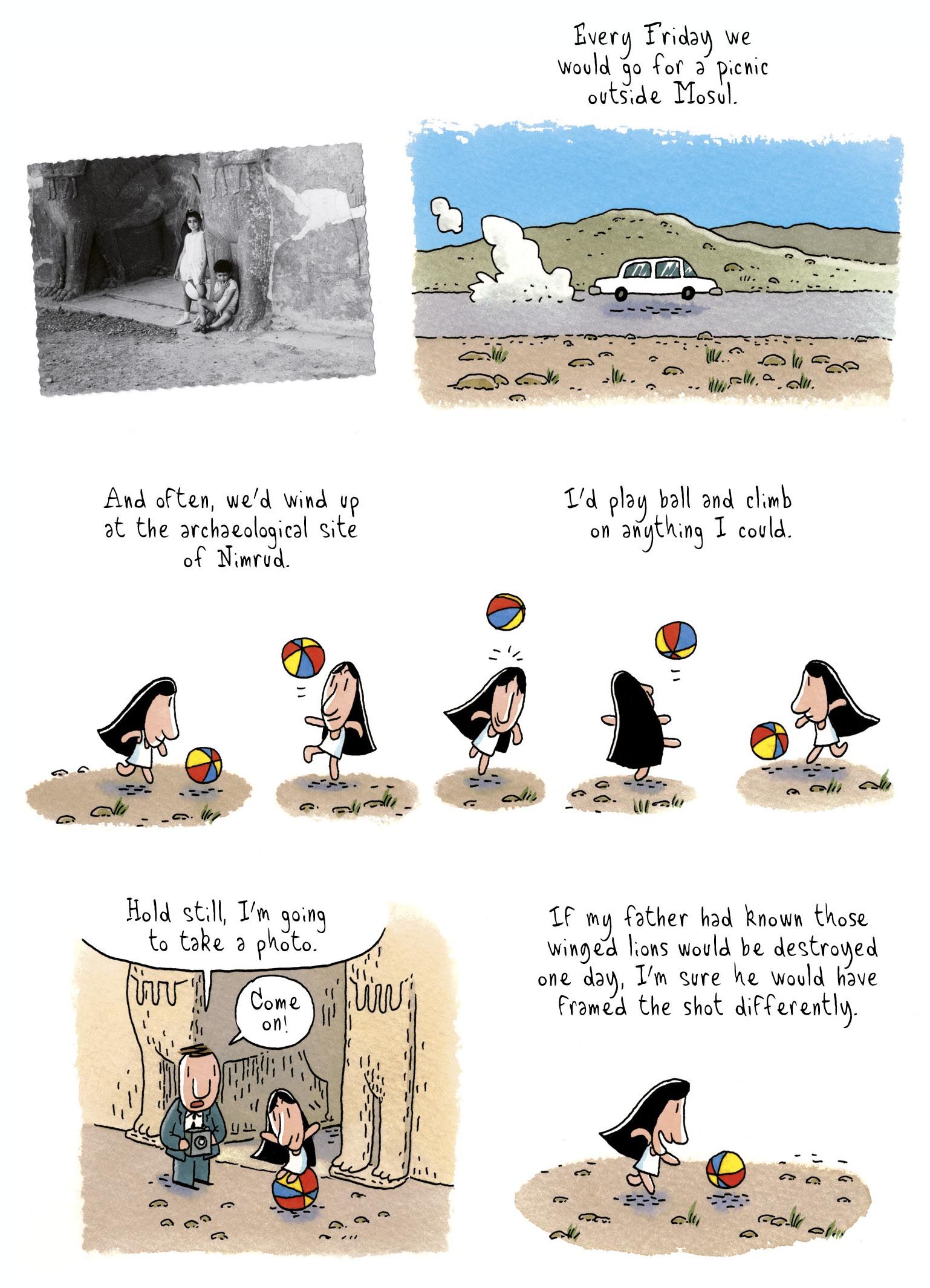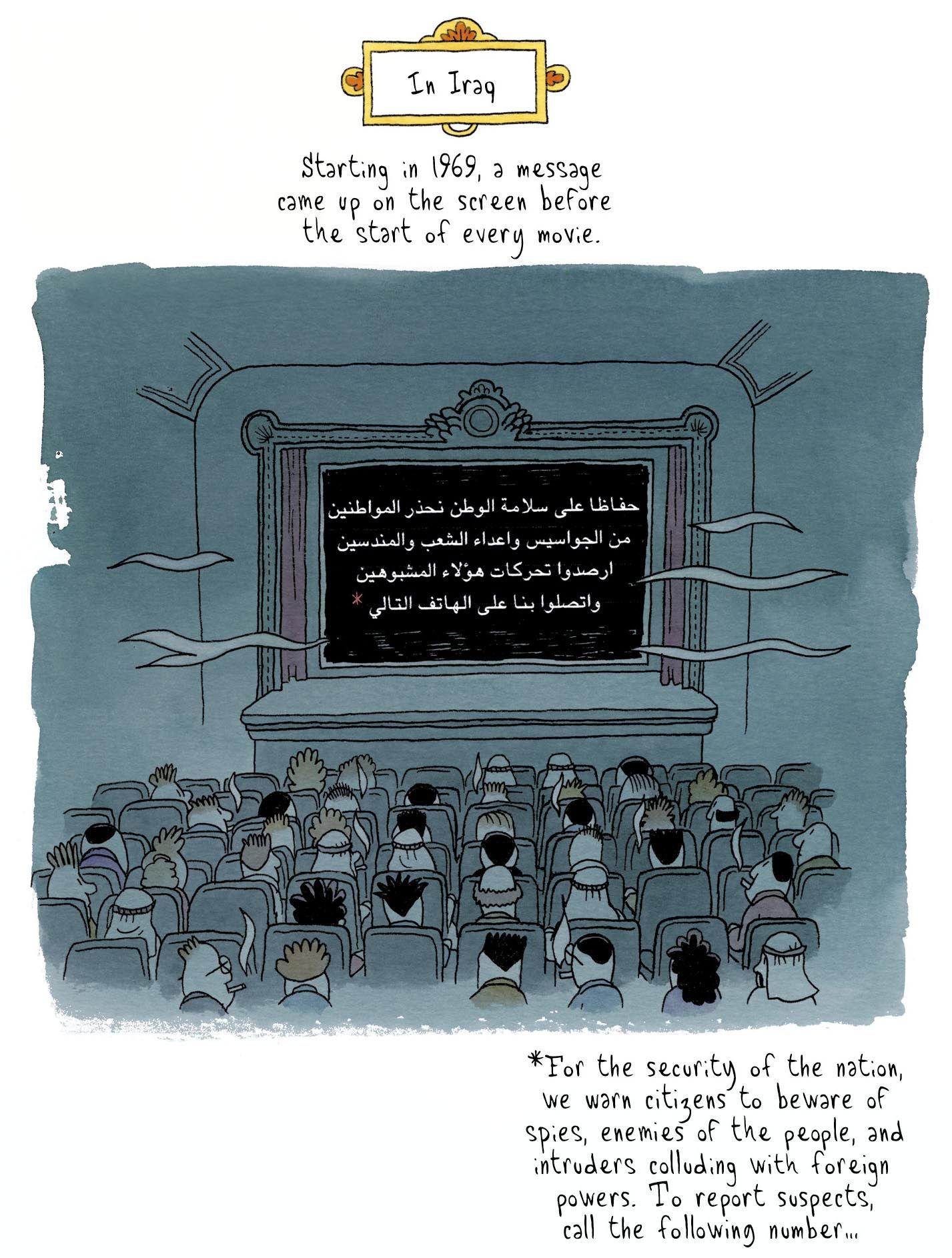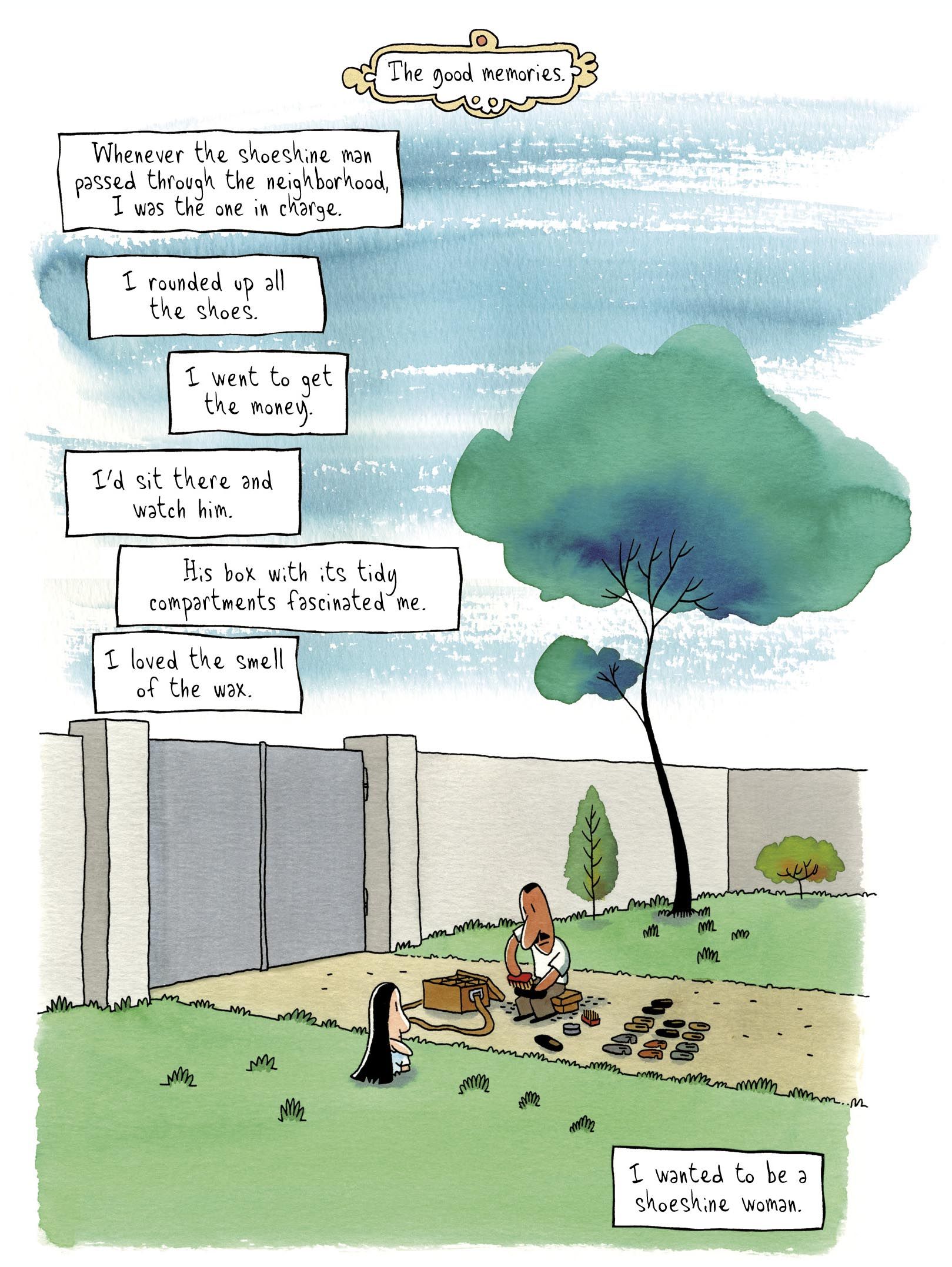Brigitte Findakly and her husband Lewis Trondheim have been collaborating on comics for decades. Trondheim, co-founder of the French comics publisher L’Association, has created international hits such as Dungeon, Little Nothings, Kaput & Zosky and more. Throughout Trondheim’s award-winning career, Findakly has been the primary colorist of his comics, abetting his artwork and stories.
In their latest release, the creative dynamic is flip-flopped, as Findakly takes the lead in co-writing her memoir Poppies of Iraq from Canadian publisher Drawn & Quarterly. Recounting her childhood as a religious minority in a turmoil-ridden country frequently subjected to internal strife and outside invasion, Findakly and Trondheim take readers into the daily community of life in Iraq, contrasting a warm and family-focused side of the country rarely depicted in media with the political chaos that instigates her eventual departure from her homeland.
CBR, with translation assistance from Drawn & Quarterly, spoke with both Findakly and Trondheim about inverting their creative partnership, balancing the Western view of Iraq by examining both familial and political situations, and exploring on the common humanity we all share despite our cultural differences.
CBR: Brigitte, do you find that people often misinterpret what it means to be Iraqi, or even from the Middle East in general?
Brigitte Findakly: Most people don't know anything about Iraq other than what they learned from the Iraq-Iran war, the Gulf War, Saddam Hussein's acts of violence, the second Gulf War, or ISIS. As a result, it's hard for them to imagine it as a place where you could live a peaceful life with loving people.
There’s a tale in the book where a boy in college couldn’t believe that you are a Christian.
Findakly: The Christian communities of the Middle East are not very well known. Just because someone is Arab, it does not necessarily mean that they’re Muslim. Being Arab means that you come from a geographic region, the region of the Middle East. So there are many Christian Arabs and even Jewish Arabs.
Did confronting those biases inform any part of your decision to make this book or your approach to it?
Findakly: No, it was more that I wanted to collect my memories and get them on paper. Despite their love for Iraq, my whole family has now fled the country in the hopes of offering their children a better future. They've scattered around the world -- New Zealand, Australia, Sweden, France, Canada, the USA... I always had the thought in the back of my head that I would return to Iraq, but now that all of them have left, it seems impossible. And then my father, with his illness, lost his memory... So finally, when Daesh/ISIS entered Mosul, the place I was born, that was the coup de grace for the Iraq I knew. All that was left were my memories and I wanted to write them down so I could be sure I wouldn't lose those too.
The “In Iraq” pages are tremendously interesting, as they give readers insight into rituals and traditions that influence daily life in Iraq. At what point in developing Poppies in Iraq did you realize the story benefited from more insight into the rites of daily Iraqi life?
Findakly: In this book, I'm balancing the personal (my family history) and the historical (charting the political changes in the country). In regards to my own history, there were aspects of life that affected everyone, not just my family. In addition to providing a rhythm to the book, the “In Iraq” sections offered a way to tell those stories and to encapsulate how we lived in those days, to show that it was how much of the Iraqi population lived. I’m telling my story, but my story is also at certain points everyone’s story. After working on the book for a dozen pages, I realized I needed to find a strategy to make our story’s universal elements obvious.
You move quickly from anecdote to anecdote in a mostly chronological way, but don’t hesitate to jump forward and backward in time to follow certain threads. The effect provides readers with a very full picture of your Iraqi experience. Was there a conscious decision to stay away from a heavier central narrative?
Findakly: Yes, I wanted to share my memories in a way that felt like the reader was seated next to me, having a conversation with me. So there’s a central chronological framework, but I allowed myself to digress, especially when the current events in Iraq would capture my attention while I was writing the book. I found that more pleasant.
Did Lewis’s Little Nothings strips influence that approach at all?
Findakly: Actually, the process was that I would share my memories with Lewis and he would suggest a way to tell them and draw them. My primary goal was for the readers to understand what I wanted to share with them. Often I wanted to go much deeper in explaining a situation but Lewis would push me to have confidence in the reader’s intelligence.
Brigitte, you’ve worked as a colorist for a long time. Have you done much published writing?
Findakly: No, this is my only experience as a writer.
Lewis, you’ve never visited Iraq, correct?
Lewis Trondheim: Correct.
While the West has seen many, many images of war-torn Iraq, you are tasked in this book with showing a more everyday side of the country. Did that lack of familiarity create any challenges in presenting the subtleties of a life in Iraq?
Trondheim: Oh definitely. But the biggest challenge was to draw people and not animals. Beyond that, I had three or four photo albums at my disposal, none of which had many exterior photos, since people were forbidden to take photographs in the street -- the government was scared of spies. And since there's no Google Street View of Mosul, I found another website, Panoramio, that had a lot of recent photos of Mosul. So I'd look at the photos, and then ask Brigitte if this or that building, street, mosque existed in the 1960s. And beyond that, if I drew something that didn't work for whatever reason, Brigitte's memory or her brother's came to the rescue.
How many times did you accidentally start to draw somebody as a bird-person?
Trondheim: [Laughs] No, that didn't happen, even if I would have very much enjoyed drawing Saddam Hussein as a pig.
Brigitte has colored much of Lewis’s work. How was the collaborative dynamic different working together as writers?
Findakly: In the beginning, there was a bit of apprehension -- we've been married for 25 years now and we didn't want to destroy our marriage over a book. But actually everything went very smoothly -- there was a lot of listening to one another. And a lot of putting confidence in one another. If I worked with a different illustrator, they might not have dared to tell me no, as Lewis did when I proposed including certain anecdotes that didn't seem interesting to him.
What’s next for you both?
Findakly: We just saw Nadwa, my childhood friend. I hadn't seen her in 28 years. Maybe I'm going to visit the rest of my family around the world. But I'm pretty sure that won't be a book; that would just be for me.
Poppies of Iraq is on sale in Wednesday, Sept. 6 from Drawn & Quarterly.

